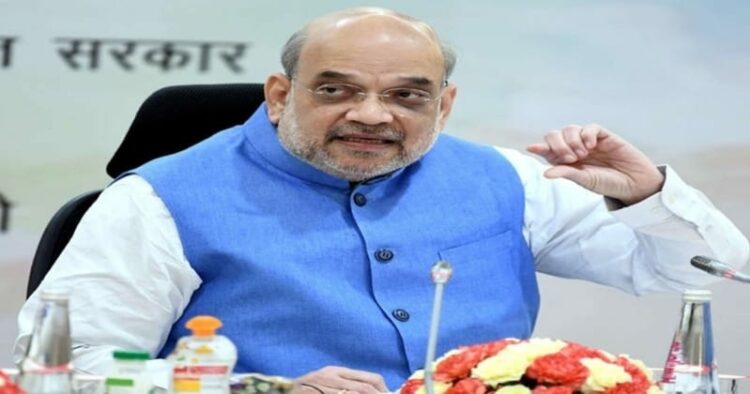On May 22, during the inauguration of Janganana Bhavan in New Delhi, which will serve as the office of the Registrar General and Census Commissioner of India, the Union Home Minister Amit Shah announced the government’s plan to introduce a bill in parliament. This bill aims to link birth and death data with electoral rolls to facilitate the broader development process.
Shah emphasised the importance of digital, complete, and accurate census information, highlighting its multifaceted benefits. He stressed that planning based on census data ensures that development reaches all sections of society, benefiting everyone.
The Home Minister proposed storing birth and death certificate data in a specific manner to enable appropriate planning of development activities. He stated, “A bill to link death and birth register with electoral rolls will be introduced in parliament. Under this process, when a person turns 18, his or her name will be automatically included in the electoral rolls. Similarly, when a person dies, that information automatically will go to the Election Commission, which will start the process of deleting the name from the voters’ list”.
He further said, “If the data of birth and death certificate is preserved in a special way, then by estimating the time between the census, planning of development works can be done properly”.
Shah highlighted the challenges faced in the development process due to a lack of relevant data.
Amit Shah stated that after 70 years of independence, the basics, such as access to clean drinking water, healthcare, and toilets, couldn’t be fully accomplished because of the absence of accurate and easily accessible census data and inadequate coordination between census and planning authorities.
He said, “It took so long because no one had the idea as to how much money will be required to fulfil these basic necessities because the utility of the census was not conceived, the data related to the census were not accurate, the available data was not accessible online and coordination with census and planning authorities were absent”.
Shah mentioned the issues coming in the way of development, “I have been involved in the development process for the last 28 years and have seen that the development in our country has been demand-based. Public representatives who had sway could extract more benefits of development for his or her constituency. This is one of the reasons why our development has been fragmented and more expensive due to duplicacy”.
During the inauguration, Shah also introduced a web portal for birth and death registrations, a collection of census reports, an online sale portal for census reports, and an updated Sample Registration System (SRS) mobile app with a geofencing feature. The SRS conducts annual surveys to evaluate birth rates, death rates, and other fertility and mortality indicators.
The new geofencing feature ensures that enumerators only record data by physically visiting assigned blocks, thereby preventing false entries. This feature will ensure that the data recorded is accurate.
Shah said, “Census is a process that outlines a nation’s development process. So it is very much necessary to make it foolproof and flawless by using technologies like the upgraded version of the SRS mobile app equipped with a geo-fencing facility”.
The Union Home Minister stated, “The government will now conduct the census electronically where every person will have the right to fill the data which will be verified and audited. This will include more than 35 parameters of socio-economic status”.
Shah highlighted the gathered data will prove valuable in formulating development policies and schemes, which were absent in previous censuses due to the lack of a framework for such analysis.
Notably, officials explained that the proposed bill would amend the Registration of Birth and Death Act (RBD), 1969. The amendment aims to streamline processes such as issuing driving licenses, passports and enrolling people in government social programs.
This idea of the amendment was first proposed in October 2021, and the Registrar General of India (RGI) will update the databases of the Population Register, the Electoral Register, and the Aadhar, ration card, passport and driving licence at the national level.




















Comments